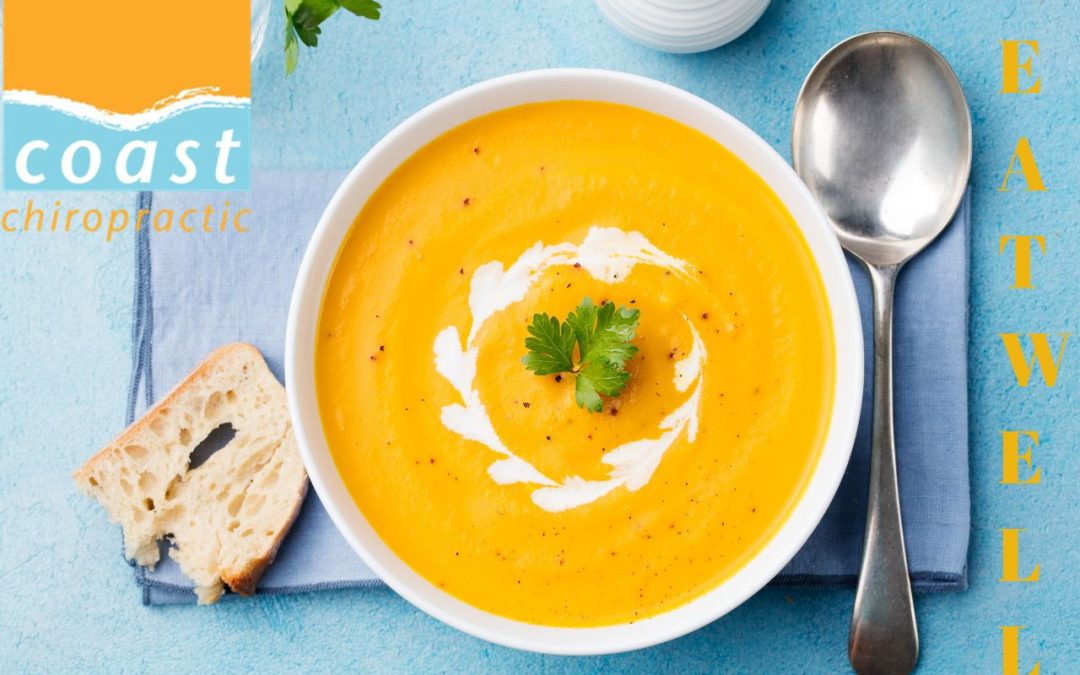If you’re looking to make some positive nutritional changes in 2016, these are some of my favourite must-have nutritional cooking essentials I hope will inspire you. Try some or all of these to add a nutritional punch to drinks, snacks or meals. Enjoy experimenting!
10 Nutritional Cooking Essentials
-
Matcha green tea
This dazzling emerald-green powder contains around fifteen times the amount of antioxidant levels than normal green tea. Quality really does count here. I love Clearspring Japanese Organic Matcha Green Tea Powder. Just whisk a teaspoon of this potent powder to hot water and enjoy. You can also sprinkle it into smoothies.
It should increase your energy levels; it’s also known to fire up your metabolism due to a specific set of compounds called catechins which can help fat burning and also have a calming effect.
Matcha Green tea also has a positive effect on cholesterol levels and provides impressive quantities of Potassium, Vitamins A and C, iron, protein and calcium. Japanese Zen Buddhist monks drink Matcha to relax and meditate with a level of alertness, thanks to the amino acid L-Theanine contained in the leaves used to make Matcha. L-Theanine promotes the production of alpha waves in the brain which induces relaxation without causing drowsiness.
-
Apple cider vinegar with ‘Mother’
The cloudier (organic) version of apple cider vinegar is due to the ‘mother’ – a blend of proteins, enzymes and beneficial bacteria. Rich in acetic acid, it helps to lower blood sugar levels and aids better digestion by increasing digestive enzymes, which break down food more effectively.
Try a couple of teaspoons in a little water and sip just before you eat your main meal. It’s also great for sore throats and you can try inhaling with a few drops in hot water to help soothe sinus infections.
-
Coconut oil
Coconut oil has been used for centuries by ancient civilisations due to its health properties. It’s the most stable oil

Grab yours when you are in the clinic!
to cook with because coconut oil can be heated to high temperatures without breaking down – and therefore doesn’t release harmful carcinogens that many other oils produce when heated. This must be part of your nutritional cooking essentials in your kitchen.
High in health boosting fatty acids, coconut oil is incredibly versatile – you can cook with it, add it to sweet healthful treats, or dollop a spoonful into a smoothie. It’s also wonderfully healing and nourishing on dry skin or dry hair; it’s effective on many types of odd skin rashes that might flare up.
Coconut oil contains lauric acid which is converted to monolaurin which has antibacterial properties, making it ideal for oil pulling (an Ayurvedic remedy to naturally improve oral hygiene by swishing and ‘pulling’ oil around the teeth and gums). Coconut oil contains high amounts of medium-chain fatty acids (MCFAs) which are immediately converted to energy and boost metabolism.
-
Eggs
Eggs are not just protein-packed but also contain a wealth of vitamins, minerals and essential fats. They’re a great source of B12 (helping to produce healthy red-blood cells to carry oxygen around the body and regulate energy metabolism) and are one of the few natural dietary sources of vitamin D, which helps support immunity and bone health. Eggs are also a mood-boosting food as they contain choline, which plays an important role in the function of dopamine and serotonin (our ‘happy hormones’). Poached eggs with a handful of wilted spinach is a quick and delicious way to start the day.
-
Turmeric
Turmeric comes from the root of the Curcuma longa plant and has a tough brown skin and a deep orange flesh. It has long been used as a powerful anti-inflammatory in both Chinese and Indian medicine. It provides potent anti-bacterial, anti-viral, and anti-fungal properties. Studies show that this powerful spice may help may protect against cancer cell growth and the management of inflammatory conditions such as arthritis, asthma, eczema and inflammatory bowel disease. It is a nutritional powerhouse, rich in manganese, zinc, B group vitamins and iron.
You can add a teaspoon into a hot mug of lemon, ginger and honey to ward off colds; or it can be used in soups, smoothies, dips and of course, curries.
-
Chia seeds
These nutrient-packed super seeds are versatile and easy to use but the best way to use them is to soak them in some water first. Chia seeds are hydrophilic, meaning they readily absorb water; this helps them to ‘swell’ and creates a jelly-like consistency. Consuming chia seeds in their dry, unsoaked state, can cause bloating and stomach ache in some people. So, soak your chia seeds first and then add them to your morning porridge/granola or add them to a green juice or into soups.
Why are they so great? They have high levels of omega 3 fats (vital for the immune system, skin, brain, heart and can help to reduce inflammation in the body); they provide a good source of fibre (essential for digestion, efficient toxin elimination and for lowering cholesterol) and they also contain high amounts of protein as well as an impressive amount of calcium.
-
Almond nut butter
Look for nut butters with no added oils, sugar or stabilisers. Nut butters are packed with protein that keeps your body sustained for hours. They are also rich in antioxidants and minerals that include Vitamin E, magnesium, potassium, niacin and folate.
You could have a go at making your own delicious pimped-up nut butter. All you need is a high speed blender, 1 cup (250 g) organic almond butter, 1 tablespoon of good quality honey or maple syrup and 1 teaspoon of vanilla bean paste. Whoosh it all up in the blender and try not to eat it off the spoon in one go!
-
Manuka honey
Honey is still a sweetener and should therefore be consumed in moderation. However, good quality Manuka honey UMF 15+ has antiviral and antibacterial qualities that are invaluable during the cold season and a must have nutritional cooking essentials. You can add it as natural sweetener to home-made banana bread, add it to hot drinks and spread a little on some rye or buckwheat bread.
-
Lemons
Antiviral, rich in Vitamin C and surprisingly alkalising – I always have lemons in my kitchen and love them. Vitamin C is needed for tissue growth and repair, adrenal gland function, immune system support, iron absorption and stomach acid activation. In addition, lemon stimulates the release of bile and digestive enzymes to help cleanse the body.
Add the juice of half a lemon to warm water in the mornings; add it to a fresh morning green juice for some extra zing or take a little raw if you are fighting a cold. Lemons also bring out the flavour in food, so they’re great for people trying to reduce salt intake – simply use a little less salt and a little more juice.
Ensure you opt for unwaxed lemons; although these cost more, the ‘waxed’ lemons contain nasty chemicals, akin to ‘shellac’ – yes, the coated nail polish used to achieve glossy painted fingernails!
-
Ginger
Anti-bacterial and anti-inflammatory warming and full of flavour, ginger can be chopped, grated, sliced and juiced into almost anything for a spicy immunity boost. It gives pep to a morning green juice and is delicious sliced into a speedy stir-fry or slowly cooked with other aromatic spices in curries. This gut friendly spice stimulates digestion, gut motility and bowel function, and can help to relieve bloating, cramping and nausea.
Ok, so I actually have a longer list than a top 10 nutritional favourites but I couldn’t end without a couple of other nutritional cooking essentials!
-
Avocados
One of my all-time favourite foods because they provide a great source of B5, which is important for managing stress and many other biological functions in the body. They’re also a good source of antioxidants such as glutathione, vitamin E and vitamin C, which help protect from toxins in the environment.
Due to its beneficial fat content, avocado enables your body to more efficiently absorb fat-soluble nutrients (including alpha- and beta-carotene and lutein found in brightly coloured vegetables).
And they contain N-acetyl cysteine, an important nutrient for raising your energy levels. Smashed on buckwheat toast with a pinch of Himalayan salt and a squeeze of lime, these delicious nutrient powerhouses will provide a guaranteed morning or mid afternoon energy boost.
-
Buckwheat
Buckwheat is actually not a grain but a seed (related to rhubarb) that is completely wheat-free. It has a wonderful nutty flavour and is gluten-free, low GI and high in amino acids, soluble fibre (promotes healthy bowel movements) and essential minerals iron, manganese, magnesium, zinc and copper. It is also bursting with B-vitamins.
Buckwheat is also rich in anti-inflammatory, anti-oxidant polyphenols like rutin, which can help to reduce blood pressure. It also contains the amino acid tryptophan which helps to make serotonin – one of the feel good hormone mentioned earlier, responsible for feelings of wellbeing.
It’s a complex carbohydrate meaning that it releases its energy slowly so it’s a good choice for maintaining blood sugar levels. As well as being nutritionally beneficial, it’s very versatile and can be used in porridge, salads and risottos. It’s also an ideal flour for baking delicious treats with. It’s becoming a popular choice if you’re seeking a gluten and wheat-free alternative to starchy grains.
Article: Daniela Barbaglia – registered nutritional therapist Dip NT Mbant CNHC
References:
- BAULCH P. (2006) Hypothyroidism. In: BAULCH, P. (2006) Prescription for healing. 4th Avery Press.
- Nutra- Donnelly, Stephen: Green tea http://www.nutraingredients-usa.com/Research/Green-tea-may-influence-brain-function-boost-working-memory-Study
- HOLFORD P (2004) The New Optimum Nutrition Bible. 2nd Piatkus Books.
- LIEBERMAN, S (2003) The Real Vitamin and Mineral Book. 3rdAvery Press.
- NORMAN A, LITWACK G (1997). Hormones. 2nd Academic press

